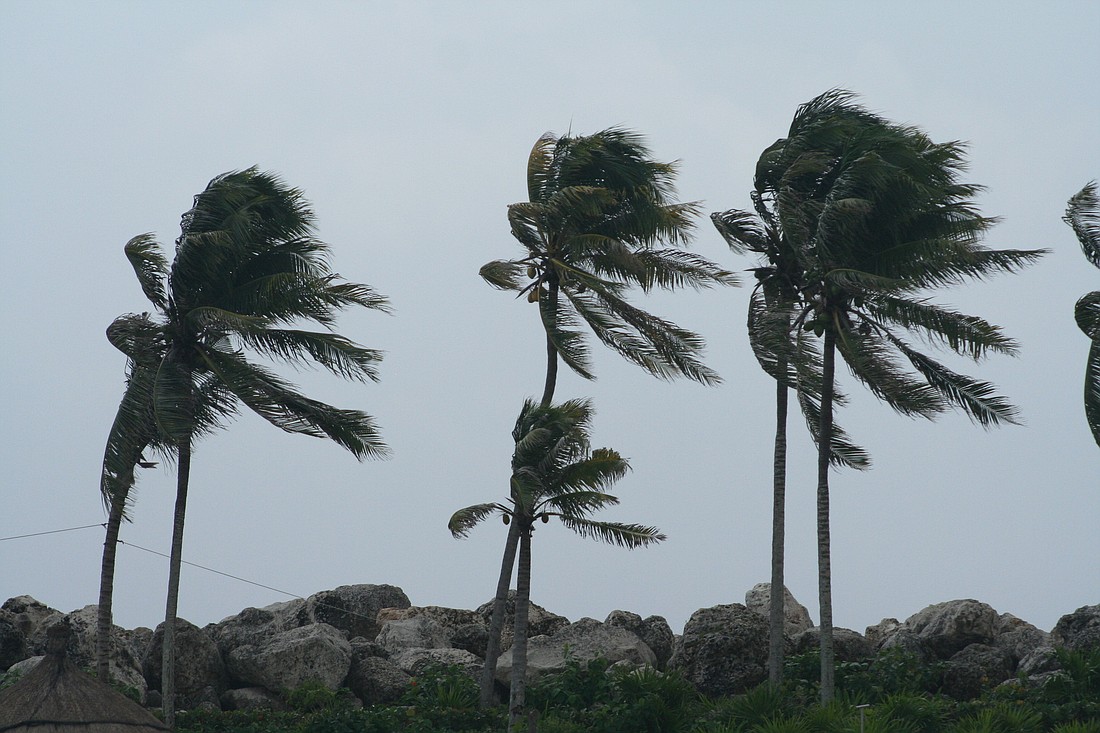The city of Palm Coast has released the following hurricane safety information:
While we can’t control the weather during Hurricane Irma, there is plenty we can do to keep ourselves and our families safe during and after the storm.
- As the winds pick up, stay indoors – even between bands or when it’s calm as the eye passes. Trees will be weakened by all the rain and will be falling, and the wind will be blowing all kinds of debris. Wait for the “all-clear” from emergency officials before venturing outside.
- While you’re indoors, keep away from windows. Close interior doors and brace exterior doors.
- If you lose power, do not use candles. The fire danger is too great. Stick to your battery-operated devices. Even smart phones have flashlights these days!
- Do not open the refrigerator door except when necessary. Throw out any spoiled or suspect food, or any food that gets wet from flooding.
- Wash your hands with soap frequently, especially before and after handling food.
- If your power goes out, turn off major appliances such as the air conditioner and hot water heater to reduce damage when electricity is restored.
- If there’s no electricity, the city’s wastewater sewer system will not be able to operate normally. If you lose power, reduce the amount of water you’re putting down the toilet/drain. Don’t do laundry, take as few showers as possible, and flush only when necessary. If you have a PEP tank and the alarm goes off, report it to Customer Service at 386-986-2360.
- Never use a generator indoors – not even in the garage. Also be sure the generator isn’t close to a window, door or vent, and don’t use a generator in high winds. The primary hazards to avoid when using a generator are carbon monoxide (CO) poisoning from the toxic engine exhaust, electric shock or electrocution, and fire. Follow the directions supplied with the generator. Make sure the exhaust port points away from the house.
- Don’t burn charcoal inside a house or garage, including in a fireplace
- Never leave an automobile running in the garage, even with the garage door open.
- Once the storm has passed, look before you step. After a flood, the ground and floors are covered with debris including broken glass and nails. Floors and stairs that have been covered with mud will be slippery.
- Stay away from power lines and electrical wires. Electrocution is a major killer in wind events. Electrical current can travel through water. Moving ladders around hot power lines is extremely dangerous. Report downed power lines to Florida Power & Light: 1-800-4-OUTAGE (1-800-468-8243).
- Remember there are animal hazards such as snakes, rodents (and other small animals), fire ants and scorpions. Any or all of these creatures could have entered homes and buildings looking for shelter, or may be in your yard but not in their normal spots.
- Clean and dry everything that got wet, as flood waters pick up sewage and chemicals from roads and commercial buildings.
- Do not wade through standing water. If you do, bathe and put on clean clothes as soon as possible. Do not allow open cuts or sores to come into contact with flood waters; if they do, keep them as clean as possible by washing well with soap to avoid infection. If the wound develops redness, swelling or drainage, seek immediate medical attention.
- Do not walk through flowing water. Drowning is the No. 1 cause of hurricane deaths, and most of these drownings occur during flash floods. Six inches of swiftly moving water can knock you off your feet. Use a pole or stick to make sure that the ground is still there while walking through a flooded area, even where the water is not flowing.
- Do not let children play in or around high water, storm drains or ditches. Besides drowning risks, the water could be contaminated. Additionally, debris and other hazards may not be visible beneath the surface.
- Stay off the roads until they’re cleared by Fire and Public Works officials. City crews will be out right after the storm, removing trees from roadways and looking for downed power lines to be addressed by Florida Power & Light. Give city crews time to make the roadways safe.
- Never drive through a flooded area. More people drown in their cars than anywhere else in a hurricane. Don't drive around road barriers. They are there for a reason. The road or bridge may be washed out. Also, driving through a flooded neighborhood street can send a wake that could flood houses.
- Non-operational traffic signals should be treated as a four-way stop. Drive defensively because other drivers may not remember the rules of the road.
Please continue to check the city’s website at http://palmcoastgov.com for additional city announcements about the storm.
The city will provide information on these social media accounts:
facebook.com/discoverpalmcoast
twitter.com/palmcoastnow
Flagler County Emergency Management is posting storm information at: flaglercounty.org/irma. Also tune into the county’s partner radio station WNZF at 1550AM and 106.3FM and the Flagler Radio App worldwide. The Flagler County Emergency Operations Center call-in center number is 386-586-5111.
Any questions about city of Palm Coast services – water and sewer, streets, drainage – should be directed to Customer Service at 386-986-2360.

